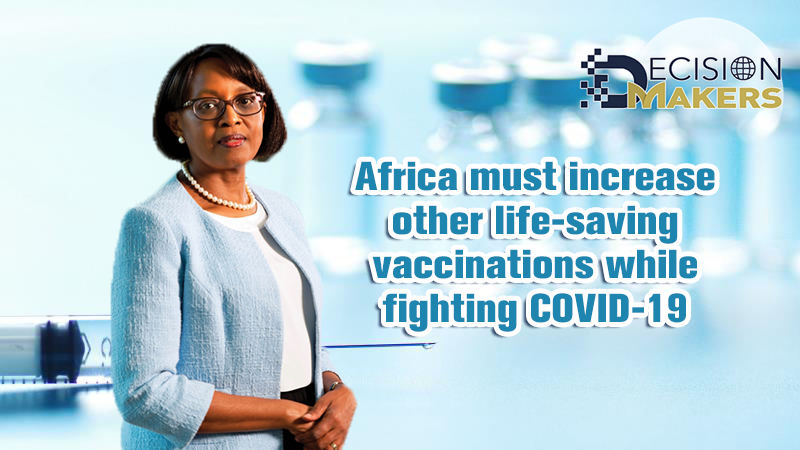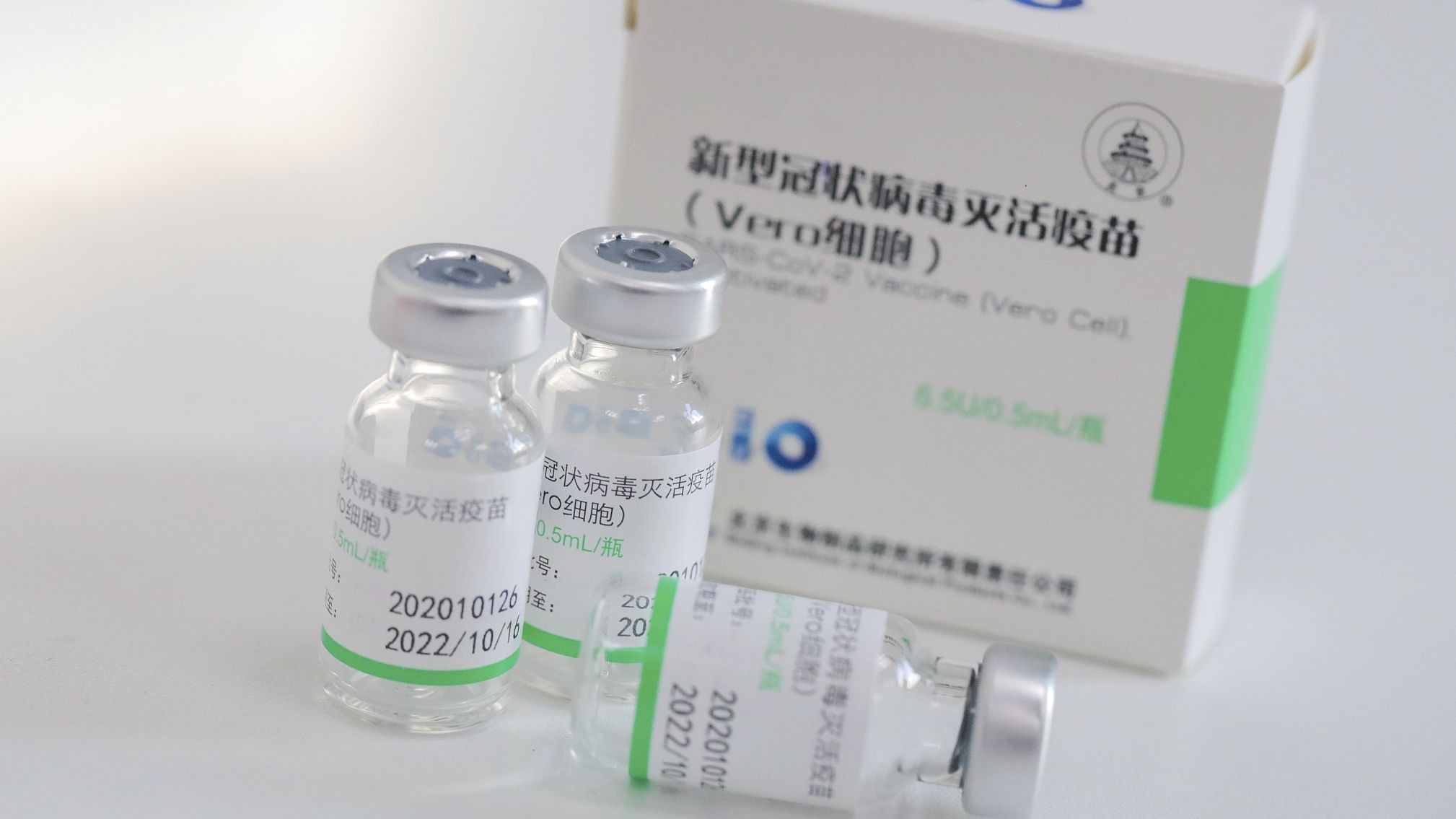
Editor's note: Decision Makers is a global platform for decision makers to share their insights on events shaping today's world. Matshidiso Moeti is regional director of WHO-AFRO. The article reflects Moeti's opinions and not necessarily the views of CGTN.
All eyes are on COVID-19 vaccines. Close to 20 million doses have been given in Africa so far, which is around just two percent of the more than one billion doses given globally. We need fairer, faster global distribution, as these vaccines will bring us closer to ending the pandemic. Yet, with all the focus on COVID-19 vaccines, we risk missing some worrying trends around other life-saving vaccination programs in Africa.
Vaccines are one of the greatest public health innovations in history. We now have vaccines to prevent over 20 life-threatening diseases, and vaccines save millions of lives each year from diseases like meningitis, rotavirus and Ebola. Just last year, vaccines helped Africa kick out wild polio.
Measles, a highly contagious virus, killed around 2.6 million people each year before vaccines were rolled out in the sixties. To stamp out measles, countries need 95 percent vaccine coverage in their populations. Yet, like many other diseases that can be prevented by vaccination, coverage in Africa has remained below 70 percent for nearly a decade.
COVID-19 has compounded this. Nearly 17 million more African children have missed out on planned supplemental measles vaccine doses since January 2020. Fifteen African countries delayed vaccination drives last year, and campaigns are still outstanding in eight African nations today. Eight African countries have also reported measles outbreaks that affected tens of thousands, and if the gaps are not quickly closed, there are risks of more outbreaks.
Africa Vaccination Week in April was the annual campaign for immunization to reach all Africans. The theme was "vaccines bring us closer." Closer to ending the pandemic, closer to when we can hug each other without worry again, and closer to an Africa with no deaths from vaccine-preventable diseases and a future when all Africans can reach their potential.

China's first approved COVID-19 vaccine for public use. /CFP
China's first approved COVID-19 vaccine for public use. /CFP
As we commemorate this week, other crucial vaccination commitments must not be forgotten. African governments and partners must redouble efforts to boost immunization against measles, tetanus, tuberculosis and other dangerous diseases.
WHO is helping African countries plug the gaps, yet we must all do more. Governments and partners must boost access to vaccines as part of essential preventive care. We must invest more in our health professionals and disease surveillance, health information systems and management and coordination. We must engage more with community leaders and influencers to ensure all Africans understand the transformative power of vaccines. In so doing, we will reach more children that have received zero doses and other under-immunized children and communities that have missed out.
Vaccines are one of the best public health tools money can buy. Every single U.S. dollar spent on childhood immunization returns around $44, as millions more healthy and active people fully engage in society. Investing in vaccines can also bring us closer to a world where quality healthcare is there for everyone, as is our fundamental right.
The hope, promise and impact of COVID-19 vaccines inspire us all, yet we cannot let other life-saving vaccinations fall through the cracks. Countless lives depend on it.
(If you want to contribute and have specific expertise, please contact us at opinions@cgtn.com.)

